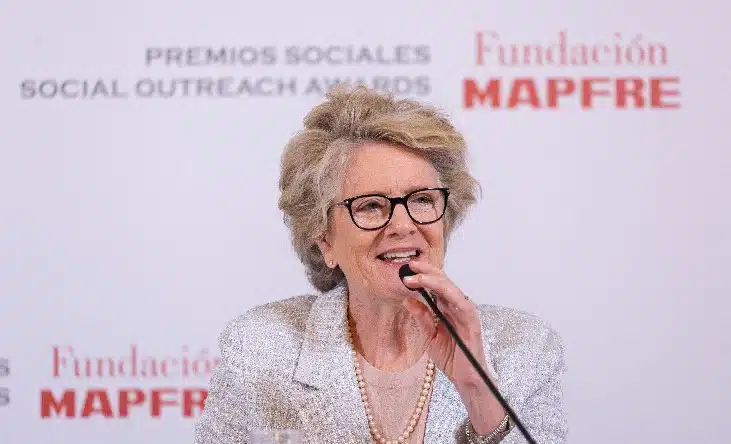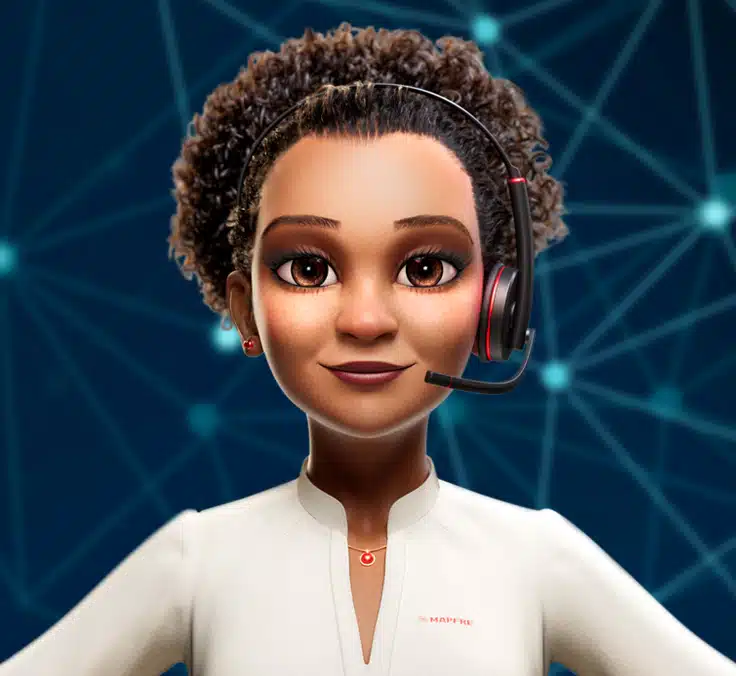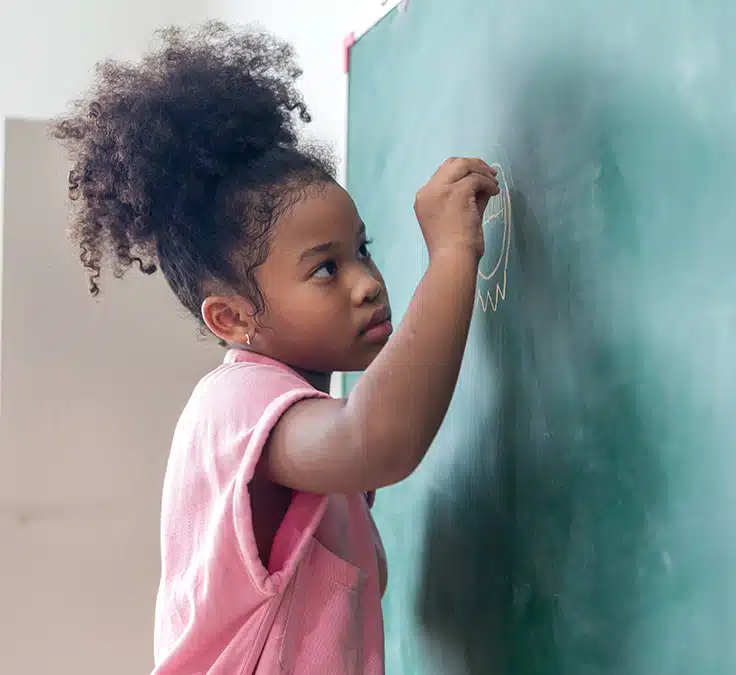SUSTAINABILITY | 10.20.2023
Education is the key to overcoming inequality and strengthening democracy in Brazil
Rebecca Tavares, President and CEO of BrazilFoundation, an institution awarded by Fundación MAPFRE as the best company for its social record, highlights the potential of Brazil, one of the countries with the most natural resources, but also with great inequalities.
In 2000, Leona Forman, born in Russia, into a Jewish family, raised in China, who had lived in Rio de Janeiro (Brazil) and worked at the UN in New York (United States) decides to create, upon retirement, together with her husband (a North American anthropologist), an organization dedicated to helping Brazil. This is how BrazilFoundation came to be—a company organized around this marriage and Brazilians who study or work in the United States and want to do something for their country. They first send money to collaborate with community projects and begin to encourage donations in the United States to help Brazil. Anonymous people (or not so anonymous, in some cases), institutions and companies join this project and the BrazilFoundation, which was first based in New York (maintaining a presence there), and ended up establishing another headquarters also in Rio de Janeiro (Brazil) to channel all these funds and develop initiatives that help reduce inequalities in the country’s population.
Recently, Rebecca Tavares traveled to Madrid to collect from Her Majesty Queen Sofia the award for the best company for its social record, awarded by Fundación MAPFRE.
We spoke with her about this institution, which has managed to mobilize more than 45 million dollars since its creation, directly helping more than 120,000 people. These 120,000 people are 120,000 thank-yous that Fundación MAPFRE has wanted to recognize with this award, which will surely serve to continue carrying out projects that improve the lives of the most needy Brazilians.
Offering outpatient care and primary care to women in the communities of Cantagalo e Pavão-Pavãozinho in Rio de Janeiro or using education as an instrument for preserving the language and culture of the endangered indigenous Terena people are just two examples of the many activities carried out by BrazilFoundation.
What lines of action is BrazilFoundation currently focused on?
In 2022, we gave the institution a boost by focusing on four areas of action, which in general could be summarized as: the fight against racism (especially the black population), the rights of girls and women, the strengthening of traditional indigenous people through sustainable livelihoods, and the education of children and adolescents.

Being focused on these four areas allows us to monitor these projects and monitor them in the field of action. We are reducing the number of projects, but we are increasing the amount of resources allocated to each one and extending their term from one to two years. We believe that this will make us more effective.
These initiatives help us to advance gender and racial equality, promote social justice, reduce poverty and preserve the indigenous communities of Brazil.
How do you choose which projects to work on?
We receive hundreds, thousands of projects and unfortunately we do not have the capacity to finance all of them. I wish we could! Since BrazilFoundation was created, we have supported more than 850 social projects.
Any project we embark on must meet four criteria: be innovative, be scalable, financially feasible and quantifiable.
Thanks to the work of philanthropy of society, multiple companies and each of the citizens who contribute what they can, BrazilFoundation can carry out these projects. This culture of philanthropy helps us build a fairer and more supportive country. We need to support it!
What is Brazil’s main short-term challenge?
Inequality (and responds forcefully and very quickly, despite the fact that her responses, in perfect Spanish, are paused and calm, feeling the problems she speaks of as her own). Brazil is a country with a lot of wealth, but it is a country where there is still a very poor society. Education is the key to overcoming inequality. Public education must be of good quality and accessible. Education must be more valued; teachers in Brazil are not recognized as they should, and their salaries reflect that. Furthermore, the most marginalized groups in society, indigenous, blacks and girls—if they are also black or indigenous, much more so—have the least access to education and, therefore, the way to combat inequality is through education.
What lessons have you learned in the more than two decades that BrazilFoundation has been working on these issues?
The importance of social justice. It is necessary to invest in education, training for work, public security. This is very important, but we will not achieve much progress if we do not achieve social transformation. The mentality must be changed to promote equality. Promoting social equality and recognizing that racism and patriarchy, in many societies, prevent us from advancing toward that equality. That’s why a change of mindset is so important, and that is achieved by committing to education.
During this time, BrazilFoundation has launched multiple projects, with the selfless help of Brazilians and people of other nationalities. What do you feel most proud of?
Of the many cases of individual improvement we have seen. People who have reached an important level of influence in public service or in the political and social life of Brazil. These are clear examples that education is very important, and today they are the best mirror to look at to replicate projects and continue working to create the tools to build a fairer and more supportive Brazil, and they also reflect hope for young people.
What would you want for Brazil in the next decade?
I would like to see the polarization eliminated from Brazilian society, and also from the countries in which this polarization has taken root. Institutions and civil society are still in consolidation in Brazil. Supporting and promoting equality through education is the most important component in strengthening democracy.
Rebecca Tavares is incredibly enthusiastic when talking about the projects being carried out by BrazilFoundation and stresses that recognition such as this is an “incalculable” stimulus for all organizations committed to social transformation in different regions of the world.
Repeats the word “education” on many occasions. Probably the one she repeats the most throughout this interview (which was more of a conversation) and is always justified. If she believes in something, it is in the power of education. 100%. Therefore, saying that she is a fierce advocate of education and that through it it is possible to change the world, even if only through small steps that will eventually become larger conquests in hindsight, is simply describing a reality that anyone who has had the opportunity to talk with her can see.
ARTÍCULOS RELACIONADOS:



